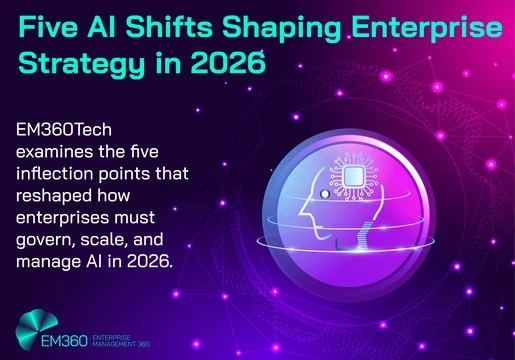Of those companies that obtain artificial intelligence (AI) in 2019, 70% will do so through cloud-based enterprise software. This is according to a new report from Deloitte Global, titled Technology, Media, and Telecommunications Predictions 2019.

The role of cloud in AI adoption
Next year, companies will accelerate their usage of cloud-based AI software and services. Deloitte also predicts that 65% of enterprises will create AI applications using cloud-based development services. rates of enterprise software with integrated AI and cloud-based platforms will also reach an estimated 87% and 83% among those that use AI software. As a result, cloud will "drive more full-scale AI-implementations, better ROI from AI, and higher AI spending." Most importantly, however, Deloitte forecasts that AI capabilities will become democratised. Up until now, AI has predominantly benefited the few early adopters - but this could all change.
The few bring AI to the many
As AI has typically demanded a wealth of expertise and resources, many companies have lacked the ability to harness its true power. However, big enterprise software firms are now integrating AI capabilities into cloud-based enterprise software. As a result, AI is becoming available to the mass market. For example, tech giant Salesforce integrated its AI-enabled business intelligence tool into its CRM software back in 2016. A range of startups are also beginning to provide similar capabilities using cloud-based development tools and applications. Crowdstrike is just one of the innovative companies that uses AI to enhance their cybersecurity offerings.
Cloud-based AI helps enterprises overcome adoption barriers
Deloitte also recently surveyed 1,900 "cognitive aware" executives whose companies have begun to use AI. Out of these respondents, 38% said that integrating AI into existing processes and workflows was a top challenge. An additional 38% cited data issues as a top obstacle to AI adoption in their enterprise. 37% also said that difficulties implementing AI was a serious problem when companies were attempting to scale proofs of concept to full production. Moreover, 41% said that they had a "moderate" AI skills gap that was hindering their progress with the technology. An additional 27% admitted that their skills gap was actually "major" or "extreme." In order to tackle these adoption hurdles, some companies are integrating cloud-based software and platforms. These capabilities enable enterprises to benefit from AI, despite lacking the expertise to build and train systems, or manage data on their own.







Comments ( 0 )